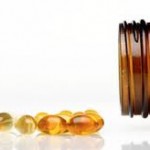 Vitamin D is commonly known as the Sunshine Vitamin but it might soon be named the Anti-Aging Vitamin. How much do we love that! As we all know, Vitamin D is important in absorbing other nutrients, supporting brain, bone, and skin health but new research shows that Vitamin D is especially important for people over 55. Read more
Vitamin D is commonly known as the Sunshine Vitamin but it might soon be named the Anti-Aging Vitamin. How much do we love that! As we all know, Vitamin D is important in absorbing other nutrients, supporting brain, bone, and skin health but new research shows that Vitamin D is especially important for people over 55. Read more
Archive for Vitamin D
Vitamin D May Slow Down the Aging Process
Experts Agree to Disagree on New Vitamin D Guidelines

So you think you spend enough time in the sun and drink two glasses of milk a day, but how do you know if you’re really getting enough of the sunshine vitamin? Although we may think we are getting an ample amount of vitamin D from natural sources, studies suggest nearly three-quarters of teens and adults are vitamin D deficient Read more
How Widespread is Vitamin D Deficiency?

A team of doctors from the McGill University Health Centre in Canada concluded that an estimation of 59% of the population as a whole were deficient in Vitamin D. They stated “Most people also do not consume enough vitamin D-rich food to obtain adequate amounts of it.” You could overcome this lack of Vitamin D intake through the use of supplementation easily.
How many of us can honestly say that we believe our exposure to the sun is enough to produce enough Vitamin D to stay healthy? Read more
Why Vitamin D Supplementation is Necessary

Everybody knows that vitamins are so important for our overall health, but how many people really know why?
Vitamins are essential to your body’s daily functions, and equally essential to your body’s growth and repair. In particular, one of the most important vitamins to the body is vitamin D3.
Around the globe, more and more people now work indoors. Since the start of industrial revolution, many people work within offices. Do you? Read more
How Much Supplemental Vitamin D Do I Need?

Many people have been found to have insufficient levels of Vitamin D, some factors that could affect the body’s synthesis of the vitamin may include;
- No use of supplementation
- Not enough sun exposure
- Cloud cover
- Smog
- Sunscreens
“Most people in the U.S. and Canada — from age 1 to age 70 — need to consume no more than 600 international units of vitamin D a day to maintain health” stated Dr. Joann Manson of Harvard Medical School. Meanwhile, other researchers and doctors have argued that those seeking to reduce bone-fracture risk and reap possible benefits for disease prevention should take supplements of 1,000 to 2,000 IUs daily. Read more
Lesser Known Benefits of Vitamin D

Vitamin D is well known for its overall health benefits, but benefits are not extended only to overall muscle and bone health.
Arlyn G. Riskind conducted experiments to assess the effects of Vitamin D and weight loss. Participants with higher levels of Vitamin D at the start of a low-calorie diet showed greater weight loss success. Read more
The D Is For Defense: How Diet and Vitamin D Defend Against Cancer

Cancer does not discriminate. It can come out of nowhere and change any of our lives on any given day – regardless of our age, gender, or race. With the World Health Organization (WHO) attributing cancer to up to 7.6 million deaths each year, we’ve all most likely been impacted by cancer in some way. Whether we’ve been diagnosed and battled the disease ourselves, or we’ve had to watch a loved one’s struggle.
While we all cling to the hope of a cure emerging someday, all we are armed with right now is a greater understanding of the disease as more and more science emerges.
It is estimated that up to 30% of cancer deaths can be linked to how we live – lifestyle factors like our diet, lack of exercise, poor weight management, and things like tobacco use or excessive alcohol consumption are major contributors.
For example, when people think of the health complications that come with obesity, they tend to think of things that come with being out of shape. Conditions like high blood pressure, diabetes, or heart disease. Very few people realize that being overweight can increase the likelihood of cancer by as much as 40 percent.
So what can we do to defend against cancer? Well, aside from making ourselves crazy by fixating on every potential cancer causer we read or hear about, we can focus on what we CAN control rather than what we CANNOT.
How about this? When we think of defense against cancer, remember the “D” is for proper diet and maintaining optimal Vitamin D levels.
We can make sure our diets include plenty of cancer-fighting foods like broccoli, cabbage, cauliflower, carrots, tomatoes, avocados, and dark leafy green vegetables like spinach, collards, kale, mustard greens, and romaine lettuce. Spices like curcumin have anti-tumor and antioxidant properties. Garlic doesn’t just fight off vampires, it also helps our cells fight off cancer. The antioxidant benefits of drinking green tea and eating superfoods like blueberries are also beneficial in thwarting off cancer.
Another line of defense is making sure our Vitamin D levels are optimal. Although it is present in a limited amount of food sources, our primary source of Vitamin D comes from exposure to sunlight. Our body converts this inactive form into a usable form that actually acts more like a hormone than a vitamin. However, for a number of reasons, many people today aren’t getting enough daily sunlight exposure. The result of this is suboptimal Vitamin D levels.
We are learning more every day about the risks associated with Vitamin D deficiency. 25% of the U.S. population has a severe Vitamin D deficiency, while half of all men and women in the country have lower than desired levels.
Just a few years ago, the optimal level of Vitamin D was considered to be anywhere from 40 to 60 nanograms per milliliter (ng/ml). That recommended level has now been increased to 50-80 ng/ml. Even higher amounts of 80-100 ng/ml are recommended to anyone treating cancer or heart disease.
Vitamin D interacts with one in every 25 genes in our body. Being deficient in Vitamin D puts at a greater risk of developing cancer since our genetic infrastructure is compromised. Our immune system is also weakened, making our body less capable of defending against viruses, bacteria, and cancer. When it comes to cancer, the body is unable to destroy precancerous cells and prevent them from developing into cancer.
Although lacking a quality clinical trial as evidence, Vitamin D researchers have suggested that up to 70 percent of breast cancer cases may be preventable if optimal Vitamin D levels are maintained.
According to the Vitamin D Council, the human body needs anywhere from 3,000 IU to 5,000 IU of Vitamin D for optimum health. D3 is the most effective form for health benefits. Since being in the sun every day, year-round, just isn’t possible for most people, in addition to it being risky due to skin cancer, supplementation just may be the best way to go for anyone who doesn’t work outside every day.
Can Magnesium Lower Your Risk of Fatal Heart Disease?

Researchers in Japan have found that high intakes of magnesium can reduce your cardiovascular fatality rate by up to 50%. The almost 15 year study focusing on more than 58,000 Japanese people aged between 40 and 79 found that increasing your dietary magnesium intake can also severely lower your risk of stroke and coronary heart disease. Read more
Vitamin D, Upstaging a Superstar

There’s been so much science and so much press on Vitamin D over the last couple years that some may wonder if it’s nothing but hype. Well, it isn’t. Vitamin D has the “chops” to back up all the claims that have been made about it.
First off, vitamin D3 is absolutely essential to calcium absorption. Some scientists think it’s even more important to bone health than calcium. The two together are highly documented to reduce bone loss and fractures. But since most of us avoid sun exposure like the plague, hardly anyone gets enough D3 naturally.
Vitamin D plays a huge role in the regulation of your blood pressure – to the point that scientists can map the prevalence of Hypertension by distance from the equator. The farther you live from the equator, the less sunlight you get (and therefore the less vitamin D) and the greater your chances for high blood pressure. So it’s no surprise that supplementing with it has been shown to lower high blood pressure in many studies.
Every dose of Calciology™ contains 600 IU of vitamin D3.
Vitamin D, the word is out!

Several studies were published recently about the health benefits of Vitamin D . With the recent interest on the rise, our data on this fabulous nutrient continues to develop. You’ll be amazed to read what we found!

